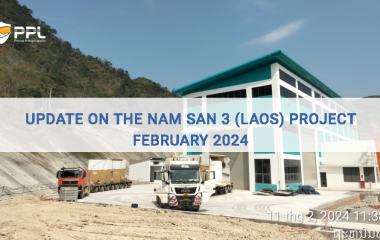Logistics in the age of digital transformation
Along with the awareness and efforts of the business community in the field of digital transformation, the effective formulation and implementation of relevant policies by the Government will position Vietnam's logistics industry to play an increasingly important role. important not only in the country's socio-economic development resources but also in the regional and global economic transformation.
For today's economy, there are two areas of greatest focus: Standards and product supply chains. The logistics industry is that part of supply chain management that deals with the efficient flow of goods, services, and related information, from the point of origin to the point of consumption according to customer needs. With the development of digital technology, logistics plays an increasingly central role in the supply chain. Logistics not only has large investment costs and has a strong impact on product prices (on average, about 5% of GDP, 20% of final prices of goods) but also determines the quality of international trade. when every customer wants the product they buy to be delivered quickly and perfectly regardless of the distance.
Over the past five years, the logistics industry has seen more and more businesses cooperate more closely with technology companies, opening up a market worth hundreds of billions of dollars.
Vietnam's economy is an open economy, based on international trade when it has bilateral economic relations with more than 230 countries and territories. Vietnam has also signed 16 free trade agreements (FTAs) with 60 economies.

The Resolution of the 13th Party Congress identified building synchronous infrastructure as one of three strategic breakthroughs to develop the country. To carry out the above task, we have gradually upgraded roads, railways, air routes, sea routes, and inland waterways between localities and simultaneously connected with other countries.
However, the application of digital technology in logistics enterprises in particular, and in Vietnamese enterprises, in general, is still limited and is facing a large gap in Artificial Intelligence (AI). According to statistics, investments in AI solution companies, in Vietnam and the Philippines are under 1 USD per capita while in Singapore 68 USD, in China is 21 USD, and in the United States reaches 155 USD. That requires Vietnam to invest more heavily to take advantage of the digital platform in the production and distribution of goods, boosting the country's economic growth.
In addition, digital transformation (DT) is also risky because digital technology provides the ability to increase efficiency and satisfy customers, but if businesses lack the mindset to change, the infrastructure is not synchronized. and without an organizational method to implement the appropriate transformation strategy, it will lead to failure and then DT becomes a tool to magnify those failures.
In fact, digital technology will help the logistics industry overcome challenges by optimizing processes, end-to-end communication, supply chain management, improving customer experience, and controlling costs. However, the process of applying digital technology in logistics enterprises is a breakthrough transformation process with high scientific significance, requiring pioneering research and proposing a model suitable for each area's socio-economic planning area as well as the natural environment. That process requires appropriate development steps and timing models to ensure success.

To build a digital business environment that ensures practical benefits and supports start-ups and effective digital business transformation, it is necessary to develop 5 specific macro policies:
National common logistics standard policy: In technology and technology, standards are the number one priority, so it is necessary to develop a common logistics standard policy of Vietnam in accordance with the trend of standards and digital transformation rules of the country. industrialized countries. Ensure the perfect connection of all software and hardware standards of logistics and transportation systems to create synergies.
Digital skills training: Any technology solution must take into account the impact on workers and put people first. There is a need to build a shared commitment to digital skills training for the workforce.
Linking socioeconomic resources (capital cluster): Logistics is necessary not only for all supply chain activities but also for all economic activities such as tourism, trade, and investment. However, this is also the field that needs the most resources for investment and vice versa, along with the transport system, the logistics industry with the application of digital technology will be the most important resource and a connection platform closely with the remaining 4 main resources: resources, people, finance and society. Only the close connection of these resources will ensure the success of the logistics industry development and create conditions for initiating, breaking through, and spreading the country's second economic innovation, positioning the national economic scale in the international arena.
International cooperation in the development of logistics centers: The supply chain is a global business field and is currently in transition, so there is a need for policies to promote international cooperation in the development of logistics centers. develop logistics centers, especially in key economic regions such as the Mekong River Delta, the Red River Delta, and the Central region. It is necessary to attach importance to the development of economic integration in ASEAN and consider it as a focus for international trade negotiations and building a national supply chain strategy, ensuring Vietnam's important position in the region.
Cybersecurity: Digital transformation brings many benefits, but its application also brings many risks. Therefore, it is necessary to strengthen cooperation and improve capacity in the field of cybersecurity when developing and implementing technology application strategies.
Along with the awareness and efforts of the business community in the field of digital transformation, the effective formulation and implementation of relevant policies of the Government will position Vietnam's logistics industry to play an increasingly important role. important not only in the country's socio-economic development resources but also in the regional and global economic transformation.
Related Posts
New Posts
- Vietnam Holiday Announcement
- PPL contributes to the success of the Greater Changhua 2b&4 Offshore Wind Farm Project
- Update on the Nam San 3 (Laos) Project February 2024
- PPL HAPPY NEW YEAR 2024
- LUNA NEW YEAR HOLIDAY 2024 ANNOUNCEMENT
- PPL CONDUCTS A CHARITY PROGRAM OF FREE MEDICAL EXAMINATIONS, CONSULTATIONS, AND MEDICATION DISTRIBUTION IN THAI BINH PROVINCE







Comments